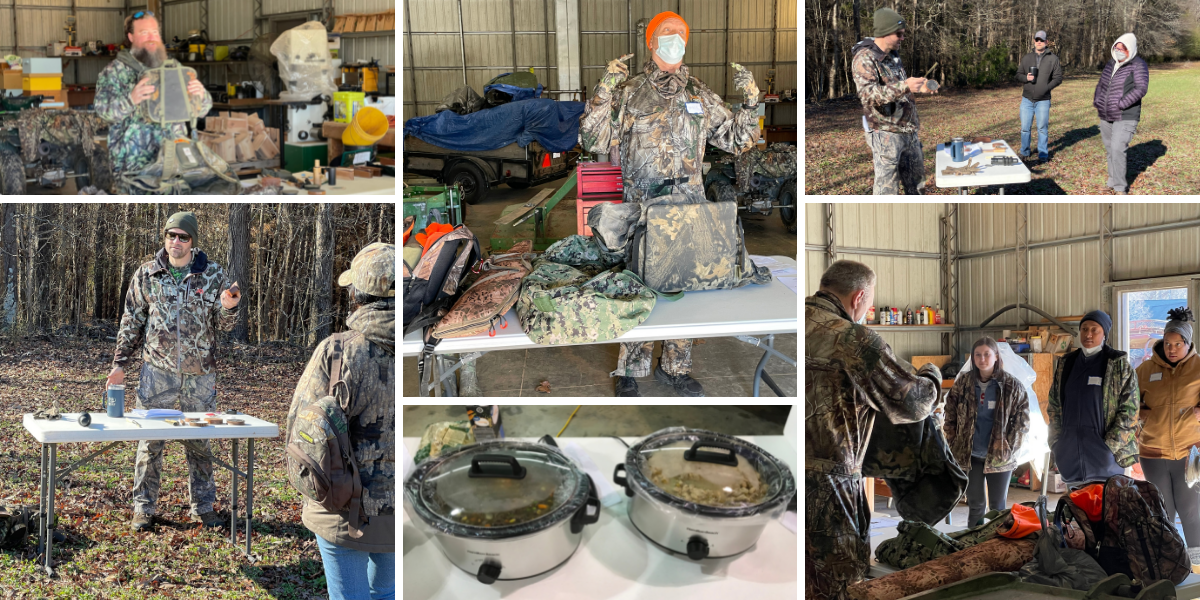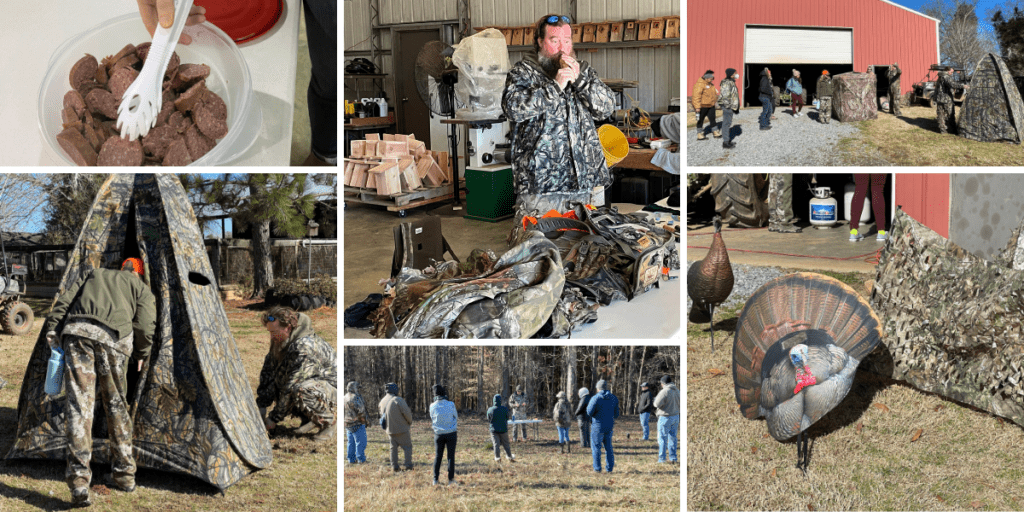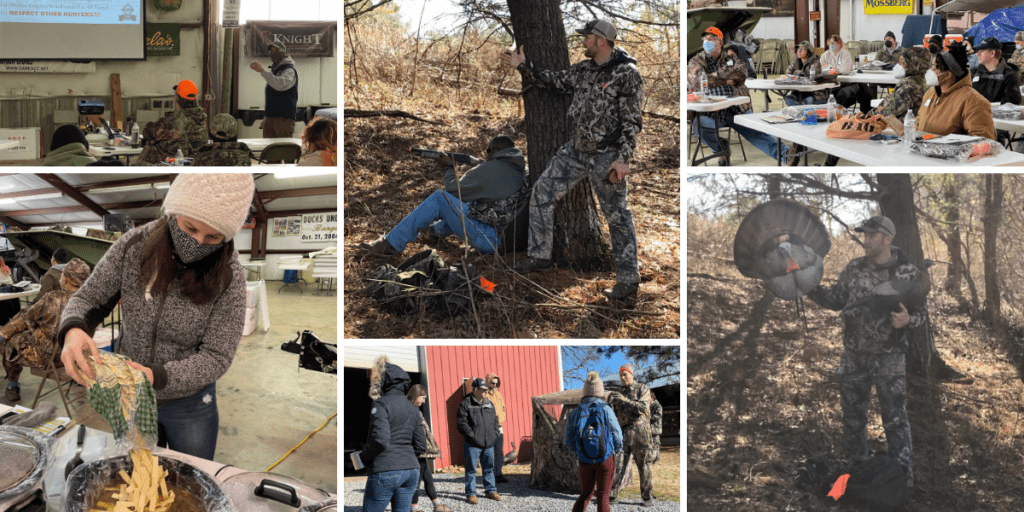Getting Started Outdoors (GSO) Workshop Teaches Beginners the Ins and Outs of Turkey Hunting


Getting Started Outdoors (GSO) is an NC Wildlife Resources Commission program geared toward those new to hunting and who don’t have a hunting community support network.
Beginner and novice hunters – nine women and five men – spent the day at Wood Duck Farm in Gastonia learning the ins and outs of turkey hunting. The Turkey Hunting 101 Workshop was part of Getting Started Outdoors (GSO), a program geared toward those new to hunting and who don’t have a hunting community support network.
NC Wildlife Resources Commission and our Gaston PAWS chapter hosted the February event to teach students about turkey hunting basics, highlight the benefits of hunting, and inspire them to adopt positive hunting-related beliefs, attitudes, and behaviors.
“Non-traditional and underrepresented groups present a uniquely promising audience for R3 – recruitment, retention and reactivation efforts,” said Hunting Engagement Specialist Walter “Deet” James Jr., who helped develop the one-day workshop.
Turkey Hunting 101 topics included:
- The ecological, economic and socio-cultural benefits of hunting and the historic connection between hunting and wildlife conservation.
- Hunting laws, regulations and the importance of ethical hunting behavior.
- Hunting equipment and gear overview, including safe hunting practices with firearms, handling and storage.
- How to incorporate “no-waste” techniques into hunting practices, how to prepare and cook game meat and healthy recipes.
- Basic turkey biology and behaviors and types of turkey hunting styles.
- Places to hunt, people to hunt with, and nature-based ways to challenge skills.
James also discussed why “taking of game animals” isn’t the only indicator of a successful hunt. “Other benefits include seeing turkeys, seeing other wildlife, spending time with family and friends, spending time in nature, good weather and telling stories,” he said.

NC Wildlife Federation’s Gaston PAWS Community Wildlife Chapter helped host the February event to teach students about turkey hunting basics, highlight the benefits of hunting, and inspire them to adopt positive hunting-related beliefs, attitudes, and behaviors.
Lunch featured several wild game dishes prepared by James. Southern Piedmont Hunter Education Coordinator CP White, Coastal Regional Education Specialist Becky Skiba and NCWF’s Director of Wildlife Resources Dr. Liz Rutledge also assisted with the workshop.
“Simply put, we could not fully accomplish both existing and future R3-related program goals without our conservation partner volunteers,” James said. “Collectively, these dedicated and passionate individuals give of their time, talent and, many times, dime to the ultimate benefit of species and habitat conservation in North Carolina.”
Getting People Outside through Academics Afield
NCWF partnered with NC State University, the NC Wildlife Resources Commission, other conservation groups, and Wake County Wildlife Club to launch Academics Afield in North Carolina. The Georgia Wildlife Federation founded Academics Afield in 2019 to build upon current Recruitment, Retention and Reactivation (R3) programming and introduce college students from nontraditional backgrounds to hunting and shooting sports. Research shows many people are sorely disconnected from nature. A recent national study found that, although many people have an enduring interest in nature, their ability and opportunities to pursue those nature-based interests are increasingly limited and inadequate.
In a college setting, program participants are more likely to come from nonhunting backgrounds and fall outside of the current demographics of hunters than participants from other hunter recruitment programs. The year-long Academics Afield program offers R3 wildlife-related curriculum and quality mentored hunting and shooting sports opportunities to participants while evaluating their experiences. Academics Afield reduces barriers for college students from these nontraditional backgrounds, and many of the participants have unique reasons for getting involved.
Academics Afield helps bridge the gap between students who have a heritage and history of hunting and those who don’t. Participants will gain extensive safety training and shooting experience and learn why hunting, conservation and ethics matter. They will be provided in-field, mentored hunting experiences by peer instructors, which will continue into 2022.
To learn more, contact Dr. Liz Rutledge, NCWF Director of Wildlife Resources at liz@ncwf.org.

